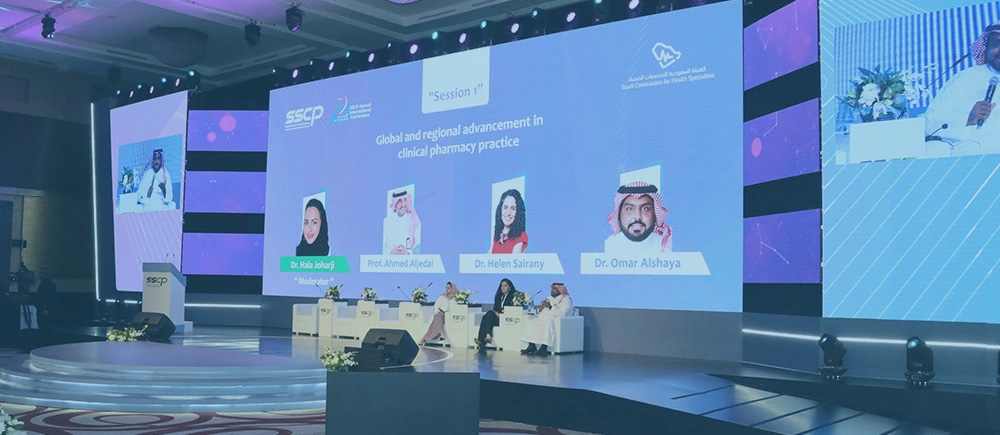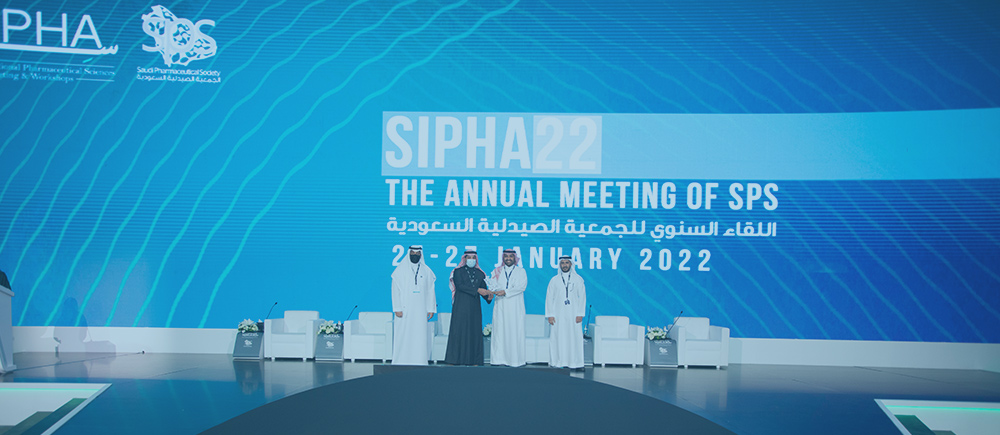Your Vision, Delivered
Say hello to the real experience!
Bring your next event to life—guided by experience, innovation, and excellence.
Let’s create together
Scientific conferences have always been a prominent gathering, drawing bright and innovative minds from across the globe. These events serve as a platform where novel ideas converge and visionary concepts blend, fostering the creation of knowledge and technology that enrich societies and tackle their diverse future challenges. However, for planning and organizing a scientific conference, there are several factors that must be taken into consideration. Because organizing that's event is not an easy task; It is a challenging endeavor that necessitates ongoing dedication and meticulous organization.
So, how can you succeed and excel in organizing a successful scientific conference? What are the steps and tips to follow to ensure the quality and effectiveness of this event? In this article, we will explore how to plan and organize a successful scientific conference, and we will review essential steps and valuable tips that can aid you in accomplishing this task with efficiency and creativity.
First, we need to understand the importance of scientific conferences as they are among the most significant means used by scientists to present, discuss, and disseminate their exemplary research and discoveries. These scientific events hold many reasons at their core, highlighting their great significance, such as:
To achieve a successful, impressive, and distinguished scientific conference, a comprehensive organizational process is essential, comprising three main stages. Careful consideration and focus on these stages are paramount. Let's explore them in detail

Before embarking on any organizational efforts, it is essential to precisely and clearly define the objectives and vision of your scientific conference. You should ask yourself: What is the purpose of organizing this conference, and what do you aim to achieve through it?
What specific topic or field do you want to discuss and highlight its significance in scientific and societal development? Identify the target audience and participants, and devise strategies to attract and motivate them to participate in the conference. Will it primarily target researchers and scientists in the same field? Or is the goal to engage a broader audience with an interest in the subject matter from diverse backgrounds?
Once you have answered these fundamental questions, consider other vital aspects to ensure a successful scientific conference, such as: What unique value will the conference offer to its participants? How will this event contribute to the advancement of the scientific field and benefit the attendees?
Will there be ample opportunities for learning and networking with esteemed experts? Will the conference showcase recent and innovative research and studies? By thoughtfully addressing these questions and others pertinent to the scientific conference, you will have successfully defined your primary objectives, target audience, and the overarching vision and values of the event.
In this regard, we will explore some areas and departments should be considered when planning and organizing a scientific conference:
Once the team members have been selected, it is essential to clearly define their roles and responsibilities, and provide them with the support and guidance. Establishing effective communication channels is crucial to facilitate coordination and communication among all team members. In addition, it is essential to encourage teamwork and collaboration, and innovation within the team to ensure the successful achievement of the conference's objectives.
Selecting the date and venue is a crucial step in ensuring a successful and exceptional scientific conference. Several factors need to be taken into account to determine the most suitable timing and location for hosting this significant event. Some of these factors include:
After selecting the suitable date and venue, it is essential to make reservations and coordinate with the venue management to agree on terms of use and necessary details to secure the place for the conference. Additionally, having a contingency plan in place to handle emergencies or unexpected changes is crucial, ensuring preparedness to tackle any challenges that may arise during the organization of the scientific conference.
The conference program serves as the backbone, providing organization and coherence to this significant scientific event. It should be designed as a diverse and engaging program that meets the participants' expectations and enriches their knowledge with new and innovative insights. The program will include:
These are some of the program formats that should be included in the scientific conference. In addition, it is essential to define the topics and objectives of each session and select speakers or presenters based on their expertise and competence. Moreover, it is crucial to determine the duration of each session and arrange the timing to allow ample time for breaks and transitions between sessions.
Before the conference, it is essential to ensure the availability of all the necessary tools and equipment to execute it successfully. This includes verifying the presence of display screens, audio engineering systems, microphones, translation headsets, as well as projectors, lighting systems, and other essential requirements. These tools and devices should be in efficient working condition to facilitate clear and high-quality communication and information transmission during the conference proceedings.
Effective promotion is crucial for ensuring the success of the conference and attracting a diverse audience. It requires meticulous planning and effort. Let’s explore the best methods to enhance the audience’s interest and their participation in this scientific event.
The first step in the promotion process is to create a dedicated website or webpage for the conference. The website should have engaging and updated content to assist the audience in session schedules, speaker information, registration, and payment options. Additionally, it should be user-friendly and mobile-responsive to facilitate easy access for all participants.
In addition, the leveraging the power of social media and media platforms can be highly beneficial. Publishing advertisements, news, and teaser videos can help increase the conference’s content and generate excitement and effectively target the intended audience and tailor advertisements to specific demographics through analytics.
Other intended audience sectors can be targeted as well, it is vital to establish clear instructions on registrations and procedures for the conference. It is advisable to use user-friendly and secure websites for online registrations and payments. Modern technology can be utilized to streamline the registration process and enhance the overall experience for participants.
Paying attention to the logistical and administrative aspects of the conference is essential, as it involves organizing and managing the attendees. This stage includes several tasks, such as determining the number and categories of attendees, sending out invitations, and registering them in the electronic database. It also involves arranging transportation, accommodation, and catering for the participants. Additionally, providing access badges, souvenirs, and certificates for them, as well as appointing a team of volunteers to welcome, guide, and assist them with any inquiries or issues.
On the long-awaited day of the scientific conference, the time has come to put all the planning and efforts into action, ensuring the execution of an exceptional and professional gathering. The importance of this day lies in executing all the arrangements with precision and effectiveness. It becomes a pivotal moment as the conference’s objectives are achieved, and an enriched experience is provided to the participants and speakers.
Ensure the registration team is prepared to welcome attendees, verify their information, and provide conference kits with essential materials and event details, if available.
Thoroughly inspect and confirm the conference venue is fully prepared and equipped. Check all arrangements and ensure the necessary resources are available for test sessions, presentations, and scientific workshops.
Carefully coordinate the schedule to ensure the presence and presentations of speakers and guests align with the conference program. Verify that everyone is available at their designated times.
Efficiently oversee the flow of sessions and workshops. Assign dedicated teams to manage each event, ensuring seamless execution and a great experience for participants.
Guarantee satisfaction and engagement of participants by interacting with them, addressing their needs and interests, and meeting their expectations. Be prepared to resolve any issues that may arise during the conference.
Arrange media coverage and press presence for conference events. Collaborate with local media and journalists to cover the conference, broadcasting important events and updates to the public.
After the scientific conference concludes, the evaluation process takes place to assess its outcomes and impacts and draw valuable lessons for future improvements and development. Evaluation is a crucial step in determining the success and effectiveness of the conference and providing appropriate measures to enhance performance in the future.
The feedback from participants holds immense importance in identifying the strengths and weaknesses of the scientific conference organization.
Reports or observations from the team members serve as reliable sources to gauge the efficiency and success of the conference organization.
Utilizing statistics or indicators is preferable to measure the impact and reach of the conference.
These recommendations may include enhancements in content quality, providing more practical workshops, utilizing modern communication techniques to engage participants, and improving organizational processes.
Here are some inspiring examples of successful scientific conferences held in the Kingdom of Saudi Arabia through WOTN platform, covering various fields and specializations.

SIPHA 2023 is a scientific and educational conference aimed at advancing the field of pharmacy in the Kingdom of Saudi Arabia.
SSCP 2022 is a scientific conference was organized and executed with the primary goal of enhancing the role of clinical pharmacists in improving healthcare quality and achieving better therapeutic outcomes for patients.
The 12th Medical Career Day served as a creative and enlightening scientific forum, aiming to enrich the knowledge of medical students and provide them with valuable training and development programs both in the medical and research field.
If you are seeking a reliable and professional partner to organize your upcoming scientific conference, look no further. At WOTN, we offer a comprehensive and innovative solution for efficiently managing and organizing all types of events. Our team's expertise and creativity are dedicated to helping you achieve your conference goals every step of the way, from planning and preparation to supervision and evaluation. We provide all the logistical, administrative, and technical support required, along with crafting a compelling and successful marketing strategy for your conference.
Our meticulous attention to detail ensures that every aspect of the event is carefully considered, and we are committed to delivering unparalleled services. Don't hesitate to contact us and join our distinguished list of clients. Witness your upcoming conference enjoying high quality and professionalism.
Say hello to the real experience!
Bring your next event to life—guided by experience, innovation, and excellence.
Let’s create together
